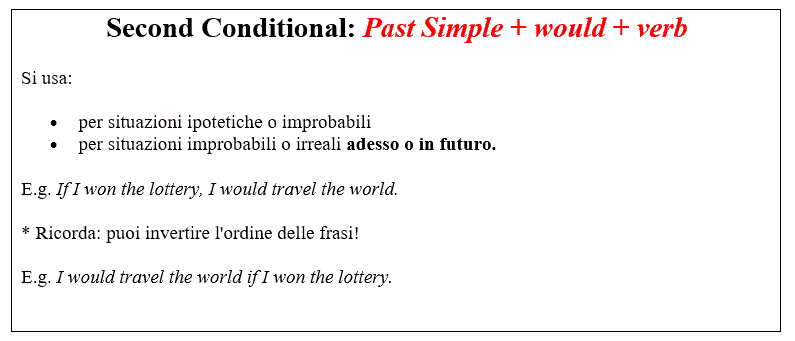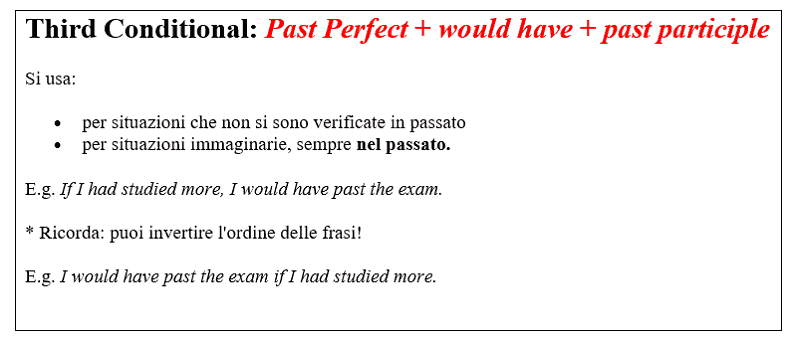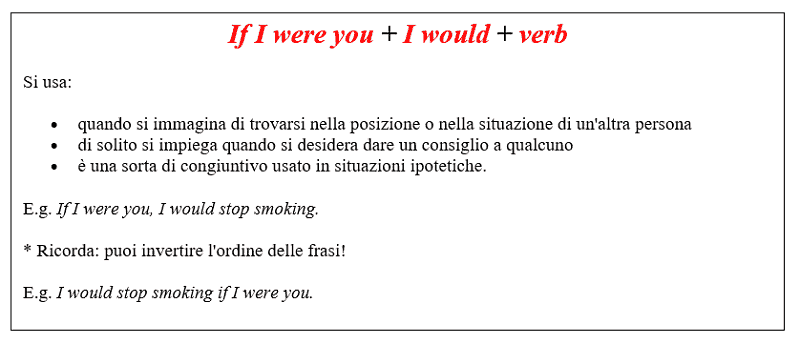Il condizionale in inglese può trarre in inganno e creare un po’ di confusione in chi studia la lingua. Il periodo ipotetico fa infatti riferimento ad una situazione di irrealtà o impossibilità nel presente, nel passato o nel futuro ed è per questo che il conditional viene usato per speculare su cosa potrebbe succedere, cosa sarebbe potuto succedere o cosa vorremmo che succedesse.
If I had more free time, I would study English.
If I had left earlier, I wouldn’t have missed my appointment.
If I were you I, would take an English class.
Ma don’t worry! Oggi imparerai come si usano correttamente il second e il third conditional e in breve tempo riuscirai a parlare come un vero madrelingua!
Il condizionale in inglese: sai come si usa?

La differenza cruciale fra il second e il third conditional è legata al tempo:
- Il second conditional si riferisce a presente e futuro
- Il third conditional si riferisce invece a situazioni passate.
*altri modal verbs possono sostituire ‘would‘ (e.g. could, might, may)
*per la forma negativa basta aggiungere not dopo il verbo modale.
Quiz time
Completa le seguenti frasi usando i condizionali.
If I saw an alien,________________________.
If animals could talk,_____________________.
If it hadn’t rained yesterday,_____________________.
If I had grown up in the U.K., ___________________.
[su_button target=”_blank” url=”https://www.myes.school/guida-alle-certificazioni-per-la-lingua-inglese/” style=”soft” icon=”icon: sign-in” desc=”]Scopri la Guida alle certificazioni per la lingua Inglese[/su_button]









